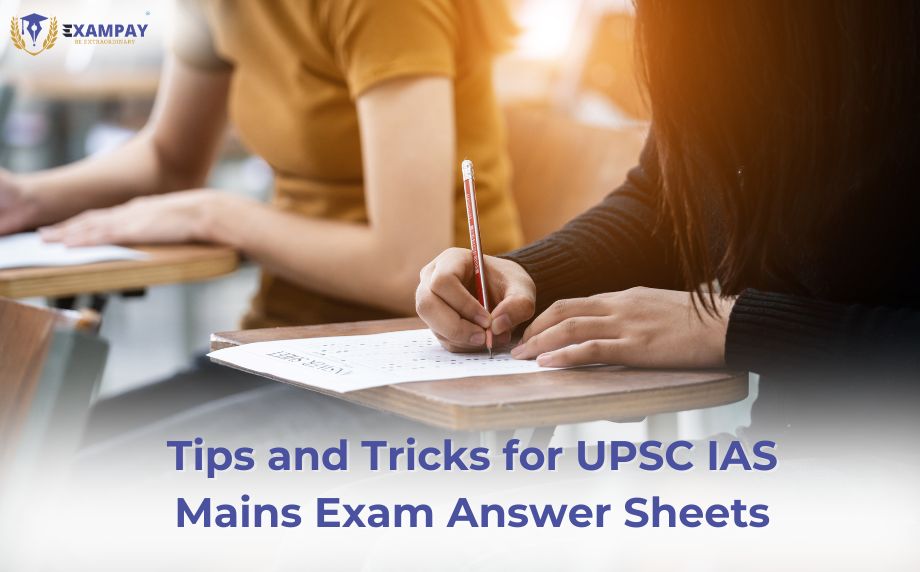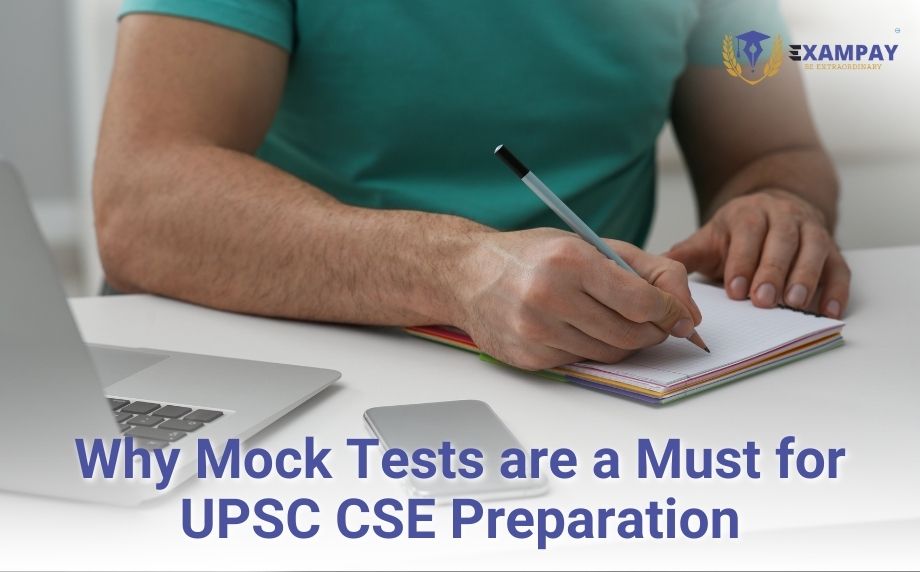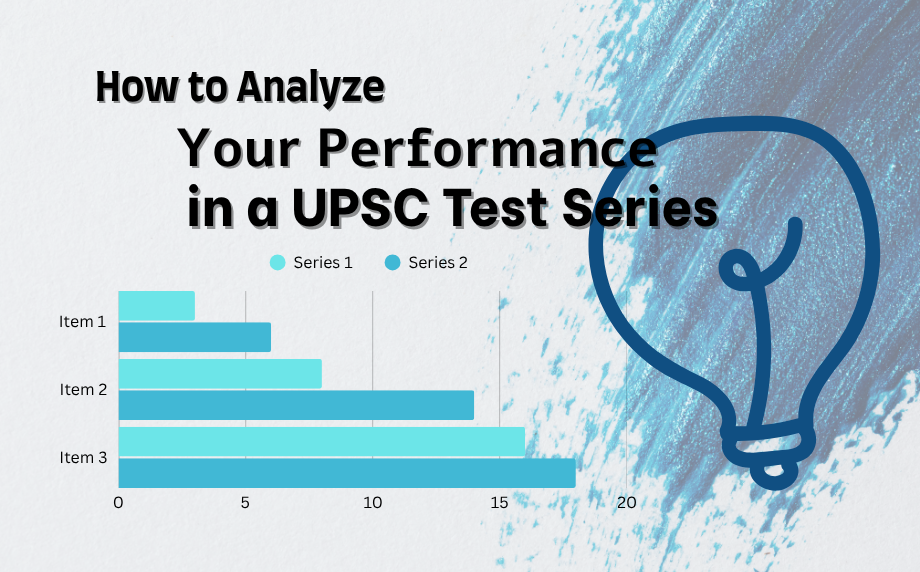Are you planning to prepare for the UPSC IAS exam? UPSC exams are considered one of the toughest exams in India. Sometimes preparing for the exam becomes tricky. Through this article, we will help you in preparing for the UPSC IAS. These tips and tricks for the UPSC IAS Mains exam will surely help you clear the exam.
What is the UPSC Mains Exam/CSE (Main)/IAS Mains?
The second stage of the civil services examination is the UPSC Mains exam. Those who qualify for the UPSC Mains as IAS candidates must first pass the Prelims, which includes scoring higher than the cutoff in General Studies Paper I and higher than 33% in General Studies Paper II (CSAT).
Before being eligible to move on to the IAS interview and UPSC Personality Test stage, candidates who aspire to be IAS, IPS, IFS, or IRS officials must pass the UPSC Mains.
Why is Answer Writing Important?
If you think preparing for subject material is important then learning to write good answers in IAS mains is equally important. This is because, in the end, what you write in the answer booklet is what counts, regardless of what you have read, studied, or practised. The way you present your answers is what determines your score. The many hours you spend studying are of little concern to the examiner. It follows that writing answers that are appropriate and consistent with what is expected of applicants is a very important skill.
Question Types in UPSC IAS Mains
The UPSC Mains exam consists of nine different subjective paper categories.
Here, we present candidates preparing for the UPSC Mains Exam with the kinds of questions that will be asked and how to respond to them on the actual exam.
The UPSC Mains Exam question categories are mentioned here, along with some advice on how to approach each kind of question.
| Question type | How to attempt questions |
| Analyse For instance, assess India’s Look East Policy’s strategic and economic aspects in light of the global post-Cold War International Scenario. | You can write a detailed analysis for this type of question, stating the pros and cons and supporting your answers with facts. The candidate is not required to present his/her view on such questions |
| Critically Examine For example, “The role of non-state actors in the Indian governance system has been only marginal.” Analyse this statement critically. | This kind of question necessitates recommendations, changes, and justifications for the suggested changes together with an analysis of the benefits and drawbacks backed up by data. (which is similar to the discussion style) |
| Discuss For instance, India’s major cities are becoming more vulnerable to flood conditions. Discuss. | In general, the answer to this kind of question should include an argument or debate that is supported by facts and ends with a conclusion. It should also include the advantages and disadvantages of the topic as well as a form of discussion writing for and against it. |
| Elucidate For eg, early Buddhist stupa art effectively explains Buddhist values even as it depicts folk themes and stories. Explain | In this case, they must clarify, expound, or provide an explanation for the query. This kind of question does not need the candidates’ opinions on the subject. |
Tips to Follow in UPSC Mains answer writing tips
- Look for the keyword in the question; there should be two to three keywords in a question. Build your answer with that term at the centre, taking into account the requirements of the question.
- Jot down five points regarding the keyword.
- Describe each point in three dimensions.
- that is, the socio-economic-political-geographical viewpoint
- In favour of, against, and conclusion
- What, why, and how
- Lastly, to provide diagrams when necessary and provide factual support for their answers.
These are the main question types in the UPSC Mains Exam, along with a few essential tips for writing answers that one must be aware of and adhere to to have their name listed in the final merit list.
Components of an Answer
Let’s examine what constitutes a good answer and its essential elements. The main elements of an answer are the Introduction, Body, Conclusion, Flow, and Presentation.
- Introduction: It provides a framework for the response and demonstrates to the examiner that the candidate has read the question and its requirements. It provides the answer’s context in advance.
- Body: The next part of the answer deals with the real demand posed by the question. It is the section with the highest grade.
- Conclusion: It brings the response to a close by restating and supporting the question’s main points. It’s a chance to go over the question again.
- Flow: This guarantees that the arguments are expressed in a logical order and that they make sense to the person who reads the answer.
- Presentation: This improves the answer’s readable quality and gives you an advantage over the competitors.
Understanding the Exam and Its Pattern
Because it is a thorough exam, the UPSC Mains Exam Pattern differs from the Prelims Pattern. A candidate may sit for the Mains test if they pass the preliminary exam. To have a deeper understanding of the subjects included in the test, download the UPSC Mains Syllabus. The UPSC Mains Exam Pattern states that applicants must take both the qualifying and merit exams.
- There will be a total of nine papers: two qualifying papers, four general studies papers, and two for optional subjects.
- For the main test, candidates are permitted to select an optional subject.
- All of the articles will also be descriptive.
View the table below for the entire UPSC Paper Pattern for Mains.
UPSC Marking Scheme for Mains
| Paper | Subject | Nature of Paper | Duration | Marks |
| Paper A | Compulsory Indian language | Qualifying in Nature (25% i.e.75 marks required) | 3 hours | 300 |
| Paper B | English | 3 hours | 300 | |
| Paper I | Essay | 3 hours | 250 | |
| Paper II | General Studies I | 3 hours | 250 | |
| Paper III | General Studies II | 3 hours | 250 | |
| Paper IV | General Studies III | Marks will be counted to determine the Final Merit list. | 3 hours | 250 |
| Paper V | General Studies IV | 3 hours | 250 | |
| Paper VI | Optional I | 3 hours | 250 | |
| Paper VII | Optional II | 3 hours | 250 |
UPSC Mains Total Marks = 1750
Reasons for Taking Mock Test
UPSC applicants are required to undergo practice exams for the following reasons:
- Practice makes a man perfect:
When measured against other competitive tests, the IAS exam has a poor success rate. Lakhs of individuals take this exam, and only around a thousand make it to the interview. Why do highly qualified UPSC candidates not pass the Civil Services IAS mains exam? The main causes of applicants’ failure are poor practice and a lack of appropriate tactics. Candidates who take the correct mock test do well in the UPSC Prelims exam. - New way of learning:
As applicants take multiple mock exams, they come across several different topics and questions. Attending the mock exams helps applicants learn new ideas and concepts. - Understanding the patterns and trends:
You may better understand the format, difficulty level, and nature of the UPSC Civil Services Examination questions by taking more accurate mock exams.
Self-evaluation
The greatest technique to evaluate one’s performance before the UPSC examination is through mock exams. Attending the practice exam helps applicants identify all the areas in which they still need to improve. They can therefore expedite their preparation for the UPSC Exam.
Revision Strategies
IAS candidates can use the following advice to effectively revise the UPSC exam syllabus:
- To prevent memory loss, a revision interval of no more than nine to fifteen days should be followed. The curriculum is extensive, thus it is best to review it frequently to avoid being overwhelmed.
- UPSC candidates must have both a well-thought-out revision and an IAS study plan. Candidates need to ensure that their study plan and revision plan align. This implies that a candidate should remember to review earlier topics when they sit down to study a particular one. An applicant should set aside 10 to 15 minutes for review, for instance, if they spend an hour on a certain subject.
Should you enroll in a Test series ?
Ideally, you should enrol for a test series if at all feasible. In addition to providing guidance, a strong test series may support you in sticking to a schedule. Additionally, it will highlight your areas of success and improvement. Either way, it’s always beneficial to have a regular report card on your answer writing.
If you lack the time or are unable to enrol in a good test series, you ought to attempt the following.
First, you should routinely have your answers reviewed by your mentor or coach if you are a part of either of these programmes. Next, candidates can choose to participate in peer review, where they check each other’s responses.
Finally, if your friends or family are qualified, you may also ask your friends and relatives to check your responses. The main takeaway is that you should obtain feedback in addition to continuing to write answers.
Conclusion
In conclusion, passing the UPSC IAS Mains exam requires mastering effective answer writing. Taking on strategies, like successful answer writing, and maintaining a balanced approach are important components. You can optimize your performance by focusing on high-scoring topics and managing your time effectively. The way you present your answers in the answer booklet matters a lot.
FAQs (Frequently Asked Questions)
To properly answer the exam’s descriptive questions, a thorough understanding of the subject matter is required. The best way to prepare for the UPSC mains test is to write answers to questions from the previous year.
Set word counts for every section of your answer; this will help you keep track of your word count more efficiently. When you have a word count restriction, it’s critical to be concise. Even though you might feel obligated to go into more detail about each topic, try to concentrate on the most important details.
You have the option of writing in paragraphs or bulleted points. However! Take care that the style you select conveys your ideas clearly and concisely.
You should be aware that having neat handwriting won’t earn you more points; instead, the quality of the answer will determine how well you score. However, poor handwriting can undoubtedly result in a loss of marks (as in the UPSC examinations, a single mark might determine your fate).
7 time management tips to use in your exam preparation:
1. Follow a Timetable.
2. List your Tasks as priority.
3. Use Calendar Notifications.
4. Remove Distractions.
5. Study in Intervals and Breaks.
6. Get Enough Rest.
7. Stay Organized.
Easy Steps To Improve Your Critical Thinking Skills
Always use caution while evaluating new information.
Examine the sources of the information.
Take into consideration several viewpoints.
Engage in active listening.
When necessary, obtain further information.
Ask a lot of open-ended inquiries.







